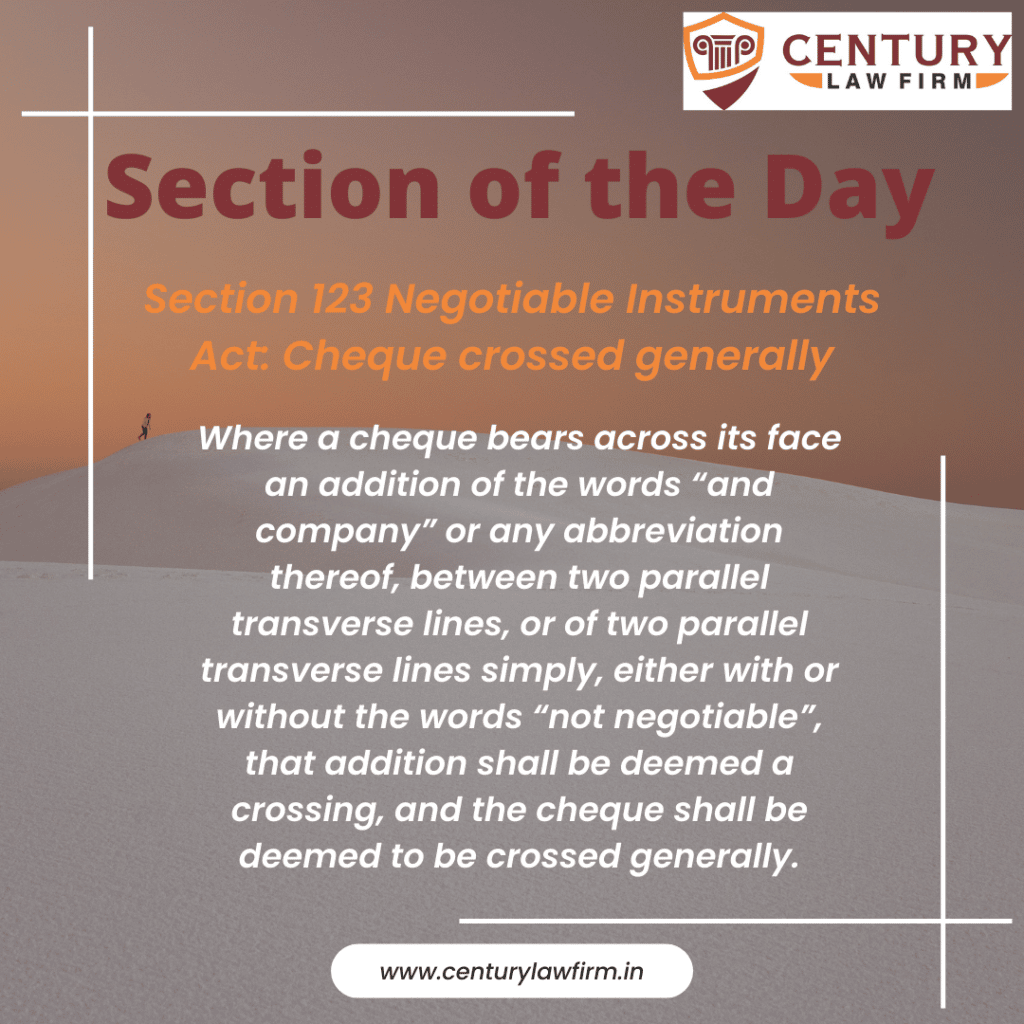Section 123 Negotiable Instruments (NI) ACT: Cheque crossed generally.—
Where a cheque bears across its face an addition of the words “and company” or any abbreviation thereof, between two parallel transverse lines, or of two parallel transverse lines simply, either with or without the words “not negotiable”, that addition shall be deemed a crossing, and the cheque shall be deemed to be crossed generally.
Summary:
Section 123 of the Negotiable Instruments (NI) Act delves into the concept of a cheque being “crossed generally.” When a cheque has an addition of the words “and company” or any abbreviation thereof, placed between two parallel transverse lines on its face, or simply has two parallel transverse lines (with or without the words “not negotiable”), it is considered to have a general crossing. This crossing signifies specific instructions regarding the cheque’s payment and ensures added security for the drawer and payee.
Thought-Provoking Insights:
1. The Significance of Crossing a Cheque: Crossing a cheque, especially with a general crossing, provides an added layer of security. It ensures that the cheque cannot be cashed directly over the counter and must be deposited into a bank account. How does this mechanism protect both the drawer and the payee from potential fraud?
2. Differentiating Between General and Special Crossing: While Section 123 explains general crossing, there are other provisions in the NI Act that describe special crossing. How do these two types of crossings differ, and what are the implications of each for the parties involved?
3. Modern Banking and Cheque Crossings: With the advent of digital banking and electronic transfers, the use of cheques has seen a decline. However, they still play a role in many financial transactions. How does the concept of cheque crossing remain relevant in today’s banking landscape, and what precautions should individuals take when dealing with crossed cheques?



